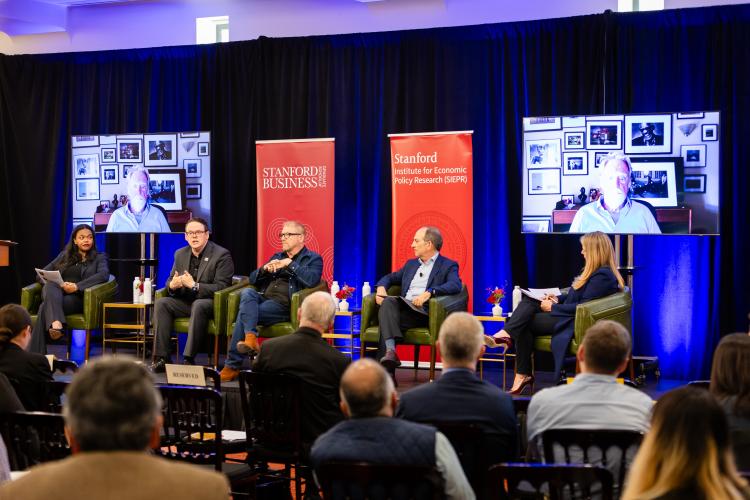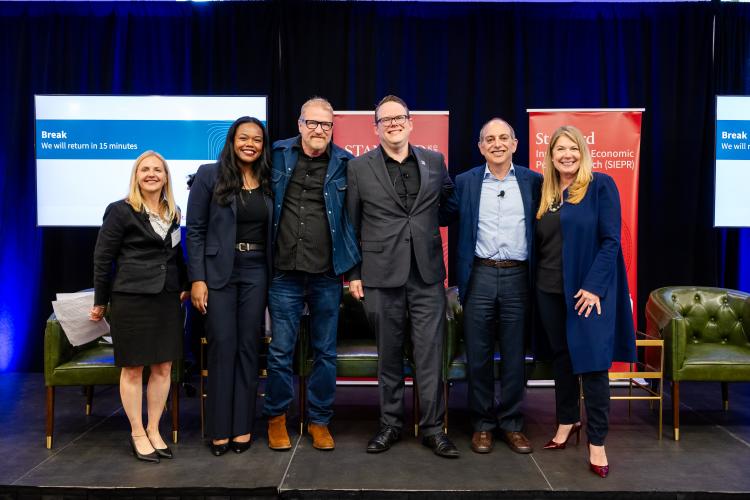
Subject-matter experts speak to a necessity for ethical and legal considerations in A.I. development and distribution.
On May 30, SAG-AFTRA National Executive Director & Chief Negotiator Duncan Crabtree-Ireland spoke on the Creators’ Rights Spotlight: How to Balance Access to Data, Intellectual Property Rights and Innovation, and Foster Competition panel at the Stanford University Graduate School of Business.
The panel was part of the university’s joint conference with the U.S. Department of Justice, Promoting Competition in A.I., a meeting of researchers, government officials and industry leaders to discuss the ethical and legal questions surrounding artificial intelligence’s impact on society. Other panelists included University of Georgia Senior Lecturer of Music Business David Lowery; Advance Publications Chief Legal Officer and Corporate Secretary Michael D. Fricklas; and Annenberg Innovation Lab Director and author Jonathan Taplin. Moderators for the panel were U.S. Department of Justice Principal Deputy Assistant Attorney General Doha Mekki and United States Patent and Trademark Office Director Kathi Vidal.
The conversation centered on artificial intelligence, intellectual property and competition in the media and entertainment industry, with topics ranging from copyright laws, creators’ rights and an understanding of A.I.’s effects on the competitive market. During the discussion, Crabtree-Ireland spoke to the necessity for legal safeguards as the technology continues to be developed.
“The reality is we need to have a balance that respects individuals and respects human creativity,” said Crabtree-Ireland, who delved into having discussions with tech industry leaders about the matter. “It's so important that we strike this balance, and it's important for all of us, because when companies go across that line, that's when we start to have the kind of knee-jerk reactions that actually hamper innovation.
“There are a lot of people that call this moment the fourth industrial revolution. And that's great if it's the fourth industrial revolution, but if the concerns of ordinary people and workers are not taken into account, it's going to be a totally different kind of revolution — not one that everyone's going to be excited about. We need to stay focused on making sure we achieve that balance,” he said.
The full replay of the panel and conference is available via the Stanford Graduate School of Business YouTube channel.
All photos by David Kim/SF Photo Agency.


